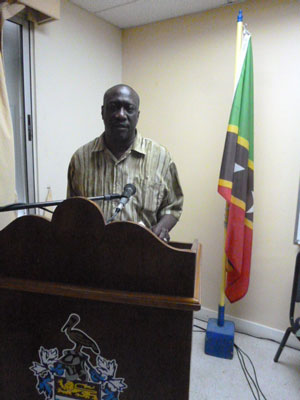 PHILIPSBURG:---- The University of St. Martin present at the 18th Annual Eastern Caribbean Island Cultures Conference
PHILIPSBURG:---- The University of St. Martin present at the 18th Annual Eastern Caribbean Island Cultures Conference
Under the auspices of the University of St. Martin (USM), Political Analyst, Julio R. Romney has attended and presented a paper at the 18th ANNUAL EASTERN CARIBBEAN ISLAND CULTURES CONFERENCE ON THE LANGUAGES, LITERATURES AND CULTURES OF THE EASTERN CARIBBEAN Co-organized by the University of Puerto Rico at Río Piedras, The University of the West Indies Cave Hill Campus, Barbados, and The UWI Open Campus St. Kitts and Nevis.
The conference was held at the University of the West Indies Open Campus, Basseterre, St. Kitts on November 5 – 7, 2015.
Mr. Romney presentation was based on his case study and paper on the topic “Ethnicity: Nation Building, Constituent State Construction and Development Administration in the Eastern Caribbean”.
This paper examines the process and experience of nation building, constituent state construction and development administration in the Eastern Caribbean; the case of Dutch Sint Maarten. The absence of ethnicity, as an intricate part of nation building, constituent state construction and development process in the Caribbean has presented distinctive challenges in the post-colonial political development of the territories - as they have been subjected to adopting governing institutions or models of government of the colonized with no regard to the physical characteristics, language and culture of the island territories. The paper discusses Dutch St. Maarten post-colonial state building/ construction challenges: (1) postcolonial/ constituent state history; (2) the challenge of legitimacy and national identity (within the Kingdom of the Netherlands); and (3) the challenge of party politics leadership/personal politics. The challenges are outlined in the paper as the impediments to the sustainable state construction of St. Maarten within the Kingdom of the Netherlands. Additionally, possible proposals which could assist in the sustainable constituent state construction/ building of St. Maarten are provided in the paper.